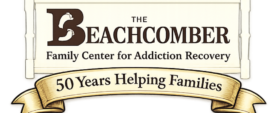When you think about loss, what first comes to mind? There is, of course, loss of life due to addiction, but that’s not the only loss that is experienced by those suffering with addiction and their families. For many people struggling with addiction, there are too many losses to count.
At Beachcomber’s Intensive Outpatient Program (IOP), we work with people in recovery and support them in their sobriety. Part of this is dealing with losses found in addiction and the impacts grief has on recovery.
Types of Loss from Addiction
The link between loss and addiction goes two ways. Some people experience loss because of addiction while other people’s loss contributes to addiction. Loss because of a drug or alcohol addiction includes:
1. Loss of life—death due to overdose or alcohol poisoning.
2. Loss of health—chronic conditions like liver failure because of addictions.
3. Loss of relationships—broken marriages, friendships, or other relationships due to addiction.
4. Loss of career or finances—inability to hold down a job due to addictions.
These are all significant losses because of addiction. The resulting grief over such losses is important for those in recovery to address and work through. There is also recovery-specific losses, such as the loss of triggering places or people that may lead to a relapse.
In contrast, some people’s addiction is impacted by their losses. For example, the death of a loved one may lead to using alcohol and drugs as a coping mechanism that turns into a more serious addiction.
Grief and Loss in addiction recovery
People recovering from addictions will have to deal with their grief from the many losses they’ve faced. Grief can make recovery more complicated because many people use alcohol and drugs as coping mechanisms, which can lead to relapse.
For this reason, people in recovery need support. Recovery is a lifelong process and can’t be done without the support of professionals and a sober community. Beachcomber’s IOP and relapse prevention group therapy is designed for those transitioning out of intensive treatment and needing support in their sobriety as they live their lives at work, and with family, in order to reclaim some of the losses they experience. But just because they’re back to “normal” life doesn’t mean the impacts of grief and loss are gone.
Getting Help with Relapse Prevention Group Therapy
Working with professionals can help people in recovery navigate the impacts of loss and grief. Beachcomber’s IOP has sessions related to relapse prevention group therapy, gender-specific groups, LGBTQ groups, family therapy, and more.
These specialized program options make it easier to address specific grief and loss concerns with those in recovery. We know that each person has their own story of loss and grief due to addiction, so we work with you to develop a specialized recovery plan that is unique to your situation.
If you want to learn more, make sure to contact us at Beachcomber to learn more about Trauma Therapy groups and start the conversation today. If you’re in recovery, you don’t need to go through grief and loss on your own—we’re here to help.
To know more about Facing Grief in Addiction Recovery






